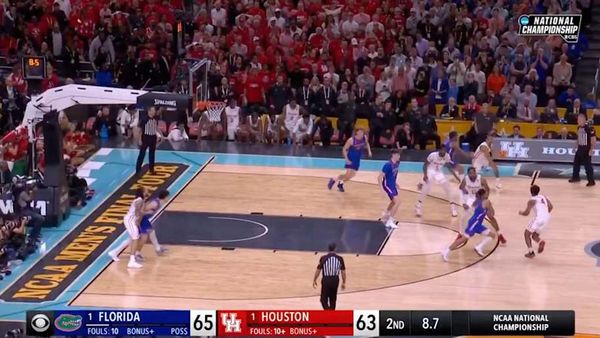
THE NSW government, the NSW Minerals Council and mining companies met yesterday afternoon to discuss the government's domestic coal reservation policy, which has led BHP to warn of a possible early closure of its Mount Arthur mine at Muswellbrook.
As the Newcastle Herald reported yesterday, BHP wrote to its 2000-strong Mount Arthur workforce on Friday, saying that the state government's expanded domestic coal reservation policy could lead to it closing the mine earlier than its planned date of 2030.
In response, the Mining and Energy Union accused BHP of a "cynical dummy spit" over the government's intervention into the coal market, but others, including the Muswellbook Chamber of Commerce, have taken the company's side.
Federal Hunter MP Dan Repacholi said in reference to BHP that "nobody should be using mining jobs as political capital", but that the state government's expansion of the reservation policy to all mines had "caused uncertainty across the industry".
"I have spoken with many of the major mine owners and operators to discuss these issues," Mr Repacholi said yesterday.
"For many local mines, they simply don't have the space and the capacity to store millions of tonnes of coal in a stockpile for future use in domestic power stations.
"Power stations in NSW haven't struggled with supply and this policy has clearly not been thought through by someone who understands the mining industry.
"Most mines would be forced to truck the supply into power stations due to rail network constraints.
"That is bad for everyone and would mean higher prices and more trucks on our roads.
"Matt Kean and the NSW Government need to sort this out quickly before there are any impacts on mining jobs and the Hunters economy."

The decision by both governments to intervene in the coal market sparked memories of the "super-profits tax" debate of 2010, in which a concerted campaign by BHP and other mining companies helped end Kevin Rudd's first term as prime minister.
Despite this experience, the two governments involved have again taken on the industry.
Commenting on BHP's move, NSW Treasurer and Energy Minister Matt Kean said "the Commonwealth's coal cap will be a drop in the ocean compared to the $47 billion profit BHP made last year on rising coal and copper prices".
"I understand the company wants all their coal to go overseas to cash in on Putin's power profits," Mr Kean said.
"But we are asking them to save a small portion of NSW coal to help NSW residents. For a short period."
Word of yesterday's meeting broke when Deputy Premier and National Party Leader Paul Toole mentioned it during his visits to Stockton and the Port of Newcastle yesterday.
After the meeting, NSW Minerals Council CEO Stephen Galilee said the industry appreciated the chance to discuss its concerns with the state price cap policy.
"The meeting was constructive, and a range of concerns were raised, including lack of prior consultation, problems with the design and implementation of the policy, and a range of potential unintended consequences, including in relation to transport and delivery of coal to generator," Mr Galilee said.
He said the meeting was a virtual hookup involving Mr Toole and the "eleven affected producers".
What the coal industry is calling an unprecedented intervention into coal markets began in early December when the Albanese government announced a plan to cap coal and gas prices, saying it would help bring down soaring domestic electricity prices.
The original NSW legislation gazetted on December 23 named 12 mines to supply more than 4.2 million tonnes of coal to the power stations, but after complaints from the companies involved, the state widened it to include all operators, who would set aside up to 10 per cent of their output.
Craig Gillard, chief executive of prominent domestic supplier Centennial Coal, said after yesterday's meeting that the company was working with the state government to find "a fair, equitable and sustainable position to ensure we continue to play our part to keep the lights on throughout the state".
"Centennial will continue to work with generators to deliver our contracted domestic coal tonnages," Mr Gillard said.
A BHP spokesperson said: "We've had initial briefing from the department and we're awaiting further detail to understand how extended directions could potentially apply to Mount Arthur Coal, which we have previously announced is being managed to closure.
"Clearly there are a number of commercial and practical implications that would have to be managed under an extended direction, along with the potential long-term impacts on market dynamics and investment in more energy supply."
The latest available figures from Coal Services show coal companies employing 23,872 people in October last year, up from 21,563 two years previously.
Muswellbrook chamber chief Mike Kelly urged the parties to find a solution that did not threaten Mount Arthur.
"Muswellbrook Chamber of Commerce and Industry is concerned that the domestic coal price cap could jeopardise BHP's plans to operate Mt. Arthur until 2030," Mr Kelly said.
"The operation to 2030 is critical to the managed closure of the mine and the progressive rehabilitation of the site. We urge the Government and BHP to find a solution which maintains the employment and other economic inputs that Mt. Arthur provides and is expected to provide to 2030 and beyond."
The northern district president of the Mining and Energy Union, Robin Wiliams, said BHP's threat to close Mt Arthur early was "nothing more than a cynical dummy spit".
"BHP has been receiving record prices for export thermal coal from Mt Arthur, which would well outweigh any consequences from a proposed domestic coal reservation policy, which is still being developed.
'It seems like BHP is happy for taxpayers and smaller mining companies to take a hit, but is not willing to do its fair share to contribute to secure, affordable energy for the people of NSW," Mr Williams said.
"It's disappointing that BHP chose to create uncertainty for its workforce in order to score a political point.
"They should be able to have mature discussions with government without using their workers as pawns and threatening scare campaigns over jobs every time a proposal arises they don't like.'

To see more stories and read today's paper download the Newcastle Herald news app here.







